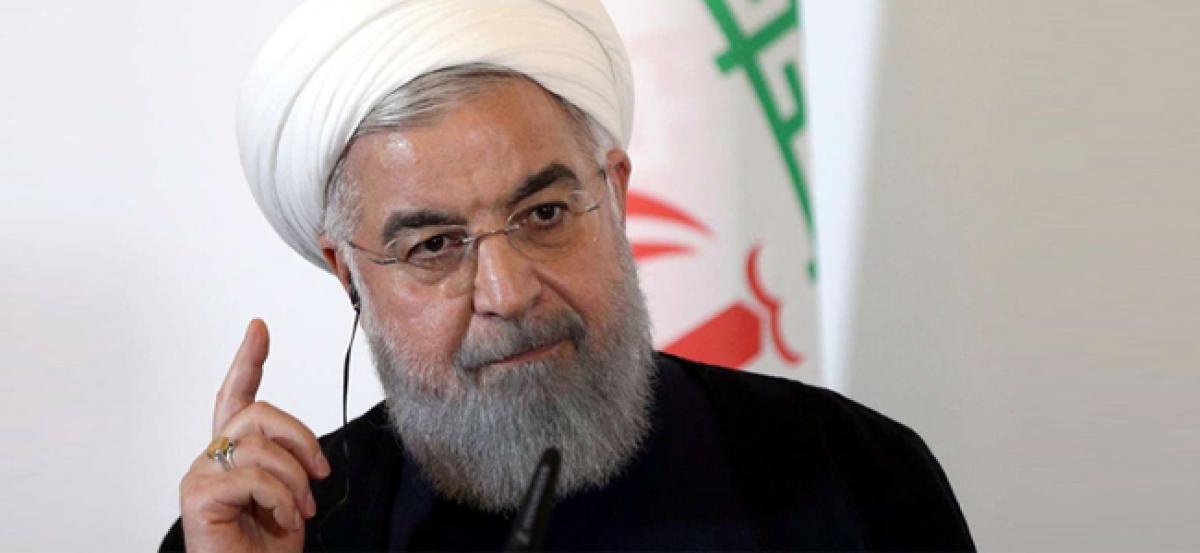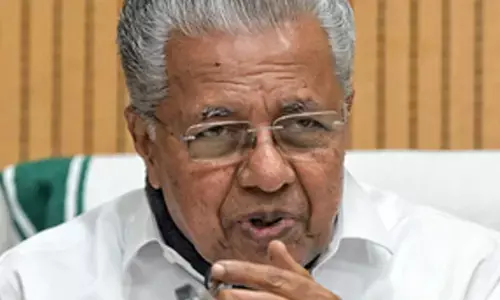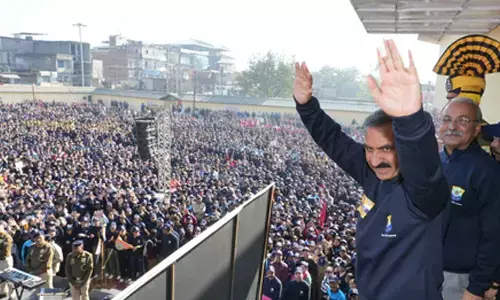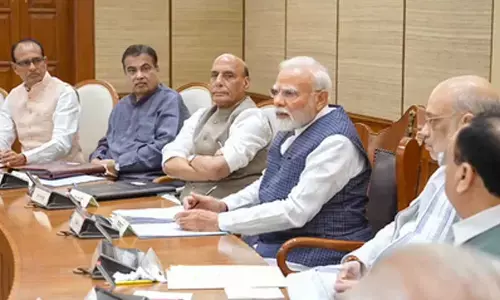Rouhani gives veiled warning to US over Iran oil ban; indicates reducing cooperation with IAEA

President Hassan Rouhani pledged on Wednesday that Iran will stand firm against U.S. threats to cut Iranian oil sales, and said Washington had not thought about the consequences of such a move.
President Hassan Rouhani pledged on Wednesday that Iran will stand firm against U.S. threats to cut Iranian oil sales, and said Washington had not thought about the consequences of such a move.
"The Americans say they want to reduce Iranian oil exports to zero... It shows they have not thought about its consequences," Rouhani was quoted as saying by state news agency IRNA on an official visit to Vienna. Rouhani's comments echoed his remarks on Tuesday when he hinted at a threat to disrupt oil shipments from neighbouring countries if Washington presses ahead with its goal of forcing all countries to stop buying Iranian oil. Rouhani did not elaborate, but Iranian officials have in the past threatened to block the Strait of Hormuz, a major oil shipping route, in retaliation for any hostile U.S. action against Iran.A senior Iranian Revolutionary Guards commander praised Rouhani's remarks on Wednesday, said the Guards were ready to implement such a policy.
Major-General Qassem Soleimani said in a letter published on IRNA: "I kiss your (Rouhani's) hand for expressing such wise and timely comments, and I am at your service to implement any policy that serves the Islamic Republic." Soleimani is the commander of the Quds force, in charge of foreign operations for the Revolutionary Guards. The United States pulled out of a multinational deal in May to lift sanctions against Iran in return for curbs to its nuclear programme. Washington has since told countries they must halt all imports of Iranian oil from Nov. 4 or face U.S. financial measures, with no exemptions. Rouhani, who is now in Vienna trying to salvage the nuclear deal, said U.S. sanctions against Iran were a "crime and aggression", and called on European governments and others to stand up to Trump's policies against Tehran.
"SELF-HARM"
"Iran will survive this round of U.S. sanctions as it has survived them before. This U.S. government will not stay in office forever ... But history will judge other nations based on what they do today," Rouhani said. Earlier in the day Rouhani told reporters that "if the remaining signatories can guarantee Iran's benefits, Iran will remain in the nuclear deal without the United States." Rouhani said that Trump's decision to withdraw from the accord was "strange" as it was "against U.S. national interests and the interests of other countries."
A senior Iranian oil official said on Wednesday that Trump's pressure on international firms not to buy Iranian oil will drive prices higher and end up hurting his own economy. Iran's OPEC governor, Hossein Kazempour Ardebili, said oil should not be used as a weapon or to make political gains, according to the Iran oil ministry news agency SHANA. "Trump's demand that Iranian oil should not be bought, and (his) pressures on European firms at a time when Nigeria and Libya are in crisis, when Venezuela's oil exports have fallen due to U.S. sanctions, when Saudi's domestic consumption has increased in summer, is nothing but self harm," he was quoted as saying.
"It will increase the prices of oil in the global markets," he said. "At the end it is the American consumer who will pay the price for Mr. Trump's policy," he added. The European Union, once Iran's biggest oil importer, has vowed to keep the 2015 deal alive without the United States by trying to keep Iran's oil and investment flowing. But European officials acknowledge that U.S. sanctions make it difficult to give Tehran guarantees. Foreign ministers from EU signatories to the nuclear deal Britain, France and Germany, as well as Russia and China, will meet with Iranian officials on Friday in Vienna to discuss how to keep the accord alive.
Iran may reduce cooperation with IAEA:
Iran could reduce its co-operation with the U.N. nuclear watchdog, President Hassan Rouhani told the body's head on Wednesday, as he blamed U.S. President Donald Trump for the “new situation.” "Iran’s nuclear activities have always been for peaceful purposes, but it is Iran that would decide on its level of cooperation with the IAEA," Iranian state news agency IRNA quoted Rouhani as saying after meeting International Atomic Energy Agency head Yukiya Amano "The responsibility for the change of Iran's cooperation level with the IAEA falls on those who have created this new situation,” he added. Rouhani said if Iran does not continue to benefit from the nuclear deal after the U.S. withdrawal, it will make “new decisions”















